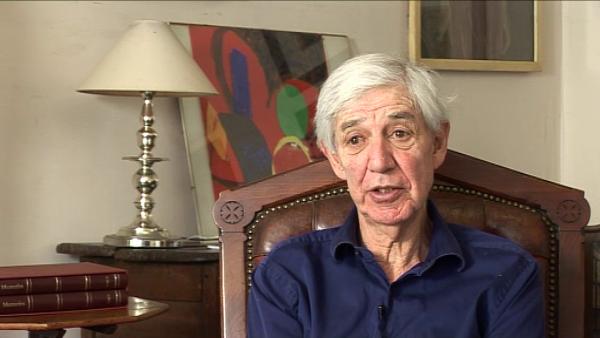NEXT STORY

'Soil mechanics wasn't very sexy, but then neither was cell biology'
RELATED STORIES

NEXT STORY

'Soil mechanics wasn't very sexy, but then neither was cell biology'
RELATED STORIES


|
Views | Duration | |
|---|---|---|---|
| 21. Consciousness | 1 | 577 | 03:09 |
| 22. The little-understood question of cells' positional identity | 363 | 04:55 | |
| 23. Sydney Brenner: The local genius | 529 | 02:09 | |
| 24. 'Reading rots the mind' | 839 | 01:04 | |
| 25. Is science dangerous? | 581 | 04:50 | |
| 26. The nonsense of bioethics | 1 | 390 | 02:11 |
| 27. Exciting ideas that ought to be researched | 339 | 02:27 | |
| 28. The relationship between evolution and development | 278 | 02:22 | |
| 29. A theory about metamorphosis | 216 | 02:05 | |
| 30. 'Soil mechanics wasn't very sexy, but then neither was cell... | 188 | 02:45 |


One of the problems in evolution and development is the evolutionary origin of larval forms. If you take... look, a key model system for development is the fruit fly, Drosophila. So the egg of the fruit fly thing and it forms a little larva. And then the larva goes through... grows a little bit, and then suddenly it undergoes a metamorphosis, and out pops a fly. How is it possible for this larva to turn into a fly? All right, we know that hormones. Well, I must confess that I have quite a simple answer to this problem. I’ve never seen anybody quote it, once again, and the way to think about it is that really what has happened in development is that at a certain stage in normal development in the original animal, it was discovered the following. I think the best way to think about it is in relation to frogs. So think about the following: it’s about the origin of the tadpole. And the origin of the tadpole and the frog is best understood... is that in the normal development of the frog, it goes through a phase where it really is... looks like a sort of slightly elongated form of the embryo. And what happened in evolution is there were changes, it... it stopped developing at this stage and it evolved into a tadpole, which then could swim away, get food, get bigger, and then all that metamorphosis is, is going back into the normal developmental programme. So it’s just a side track from the normal developmental programme. It goes off somewhere and where metamorphosis is, it’s going back to the... it recapitulates its original programme.
Lewis Wolpert (1929-2021) CBE FRS FRSL was a developmental biologist, author, and broadcaster. He was educated at the University of Witwatersrand (BSc), Imperial College London, and at King's College London (PhD). He was Emeritus Professor of Biology as applied to medicine in the Department of Anatomy and Developmental Biology at University College London. In addition to his scientific and research publications, he wrote about his own experience of clinical depression in Malignant Sadness: The Anatomy of Depression (1999).
Title: A theory about metamorphosis
Listeners: Eleanor Lawrence
Eleanor Lawrence is a freelance science writer and editor, and co-author of Longman Dictionary of Environmental Science.
Tags: Drosophila
Duration: 2 minutes, 5 seconds
Date story recorded: April 2010
Date story went live: 14 June 2010